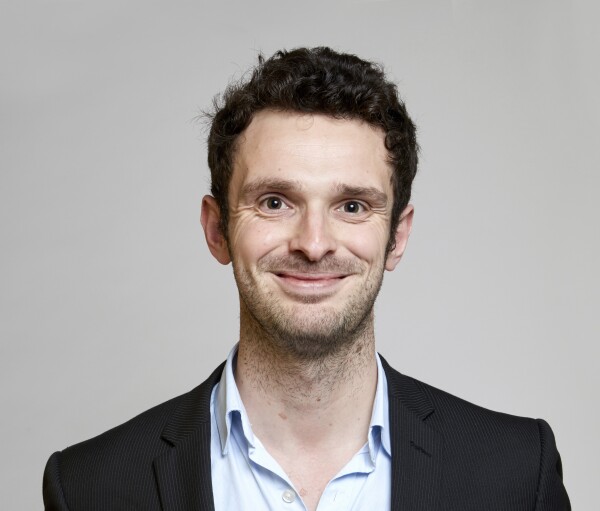MacDiarmid Institute researchers named in prestigious UK science award
25 June, 2025
Three MacDiarmid Institute researchers are part of a global science group announced today as winners of the prestigious 2025 UK Royal Society of Chemistry prize for creating an entirely new type of glass.
The ‘Pioneers in Hybrid Glass Research Group’, a team of 18 researchers from ten countries and led by Te Whare Wānanga o Waitaha | University of Canterbury (UC) based MacDiarmid Institute Investigator Professor Thomas Bennett, has been named winner of the UK Royal Society of Chemistry’s Dalton Horizon Prize for the discovery and development of hybrid glasses.
Professor Bennett said hybrid glass is the first new chemical family of glasses formed since metallic glasses in the 1970s.
‘Nearly all glass is the type we see — or rather don’t see — in our houses, and two other types of glass have been known about for some time: organic glass and metallic glass. This new metal-organic or ‘hybrid’ glass is now considered to constitute a fourth category of glass chemistry.’
This award by the UK Royal Society of Chemistry shows the research of these MacDiarmid Institute Investigators is at the leading edge of international developments on these challenging topics.
Professor Nicola Gaston Director MacDiarmid Institute
Congratulating the international team of 18 researchers, MacDiarmid Institute Director Professor Nicola Gaston noted that the three NZ based researchers in the international group were all part of the Institute’s Catalytic Architectures research programme.
‘Thomas Bennett, Matthew Cowan, and Shane Telfer are all part of our Towards Zero-Carbon Catalytic Architectures research, where we’re focusing on materials that can capture CO2 from the atmosphere and then transform this captured CO2 into green fuels.
‘These are hard scientific challenges, and that is why, as a Centre of Research Excellence, we target them. This award by the UK Royal Society of Chemistry shows the research of these MacDiarmid Institute Investigators is at the leading edge of international developments on these challenging topics.’
Professor Bennett said that the finding initially caught researchers by surprise.
‘In 2015, I was looking at how materials expand or contract when heated, when a colleague in Denmark who I was collaborating with emailed to say that that the material melts.
‘My first thought was “no it doesn’t”, but then I saw a picture and realised it had melted, and that it had actually formed a new glass.’
He said the timing couldn’t have been better.
‘This opened up a thousand questions for me – what’s its structure, how are the atoms bonded, what are its physical and mechanical properties? I later realised that these ‘hybrid glasses’ could separate gases including CO2, like a MOF.’
(A ‘MOF’, or Metal Organic Framework, is a material, usually in powder form, that can be used to separate e.g. CO2 from waste streams due to its kitchen sieve like structure.)
Professor Gaston said the award also showed the impact of international and interdisciplinary collaboration. ‘When they can bring their expertise together, researchers from different disciplines at different universities in a small country like NZ can, and do, deliver scale and impact.’
Professor Shane Telfer (from Massey University) and Dr Matt Cowan (from the University of Canterbury) had been collaborating through the MacDiarmid Institute for many years and had worked closely with Professor Bennett (who first met many of the MacDiarmid Institute team when he spent time at UC as an Erskine Fellow in 2019).
‘As Alan MacDiarmid, who the Institute is named after, most famously said: “Science is People’. It is delightful to see such an international collaboration of so many celebrated through this award.’

Professor Thomas Bennett, MacDiarmid Institute Associate Investigator.


